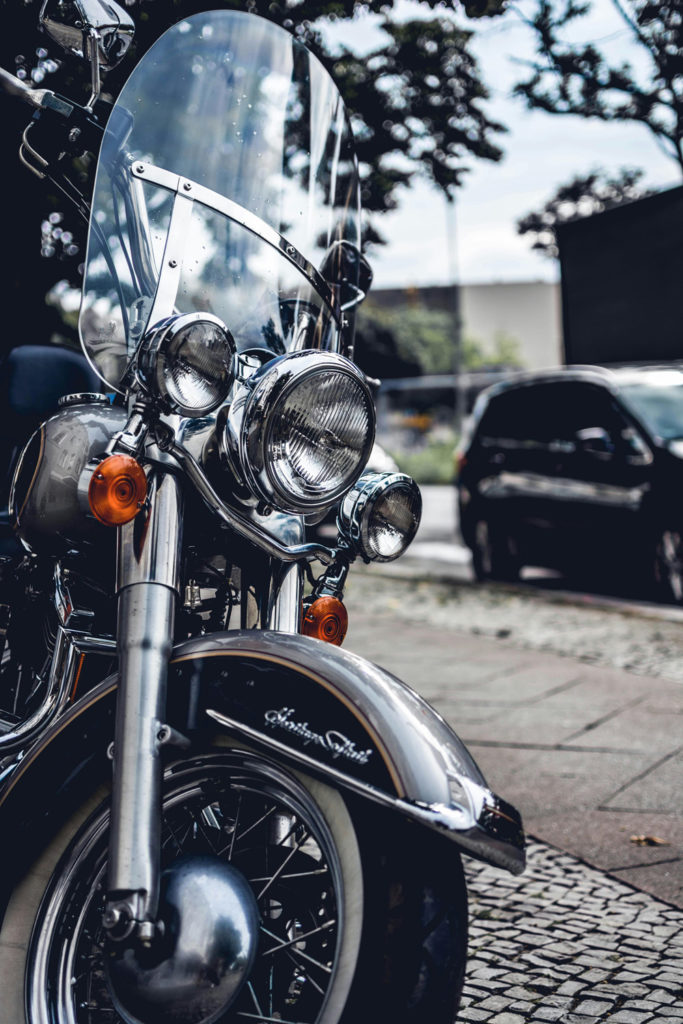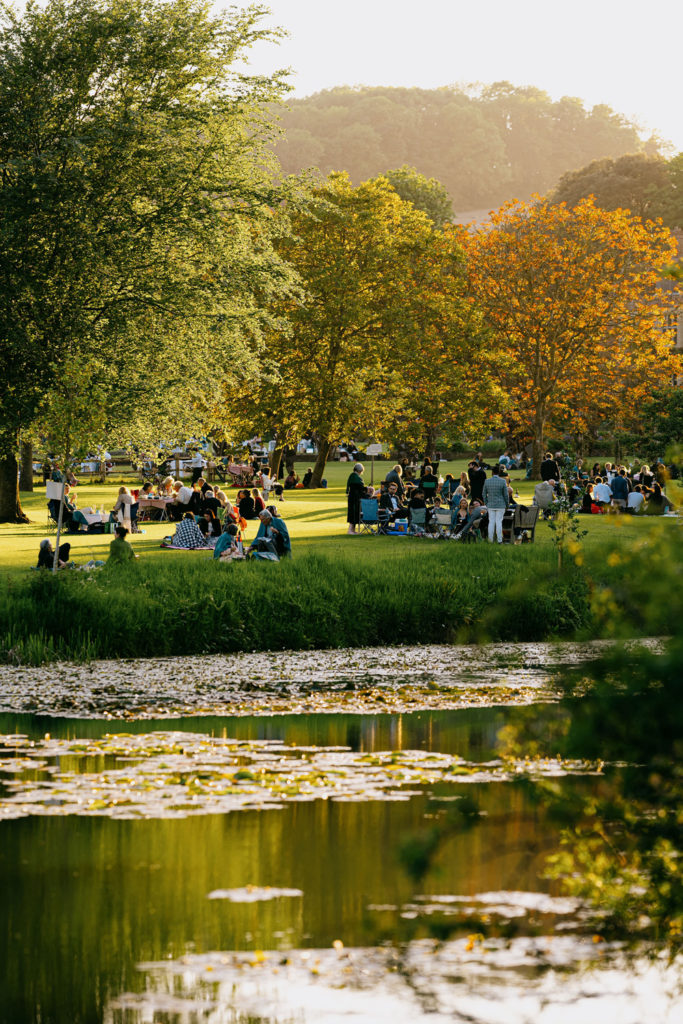Green Heroes: Mahira Kalim, Founder of Spruce
By
4 years ago
'Our goal was to offer a safe, convenient and truly eco-friendly alternative in a market that is flooded with toxic chemicals and single-use plastics.'
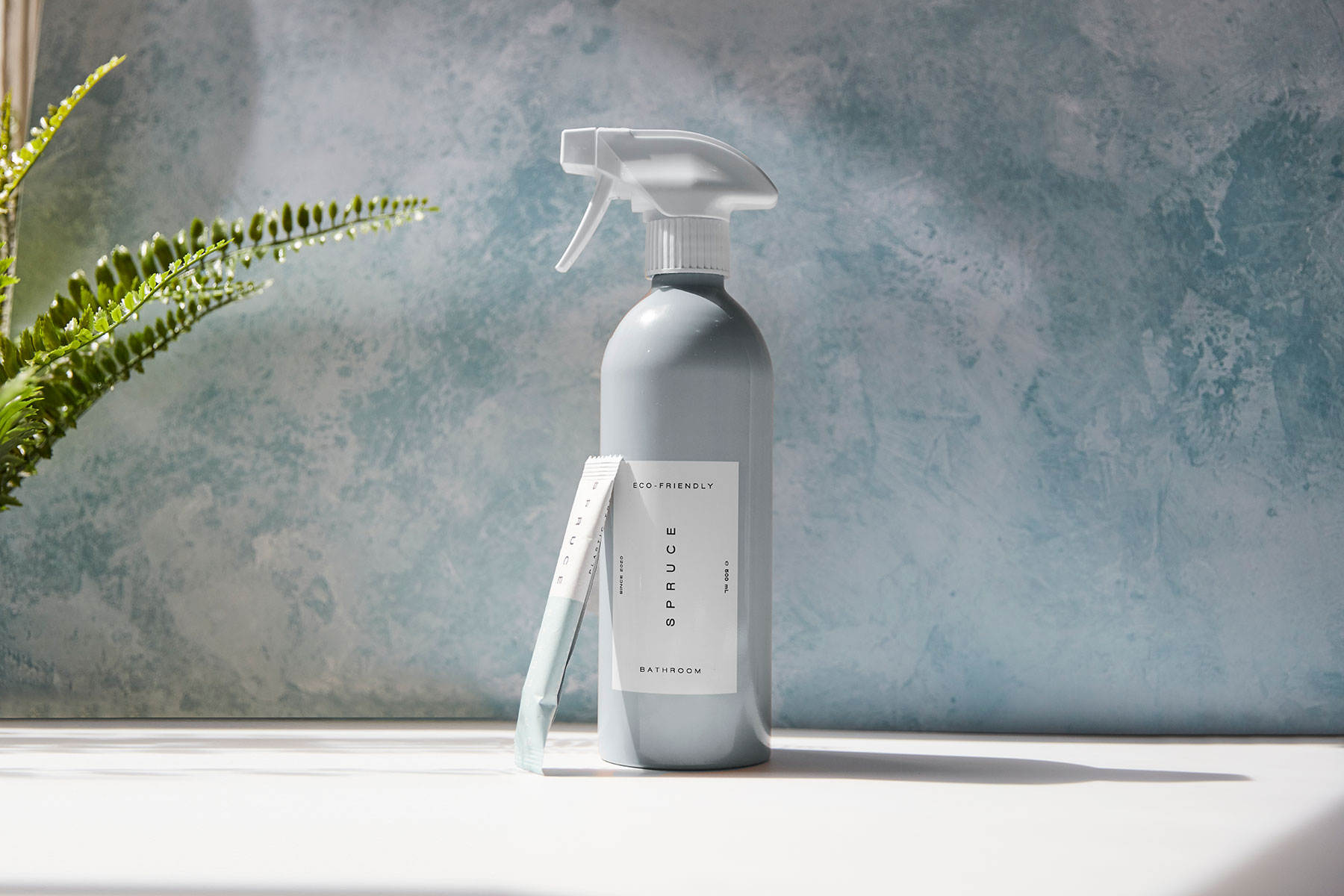
Ditch the bleach and single use plastic and switch to Spruce, which offers cleaning products that are super-safe, convenient and truly eco-friendly
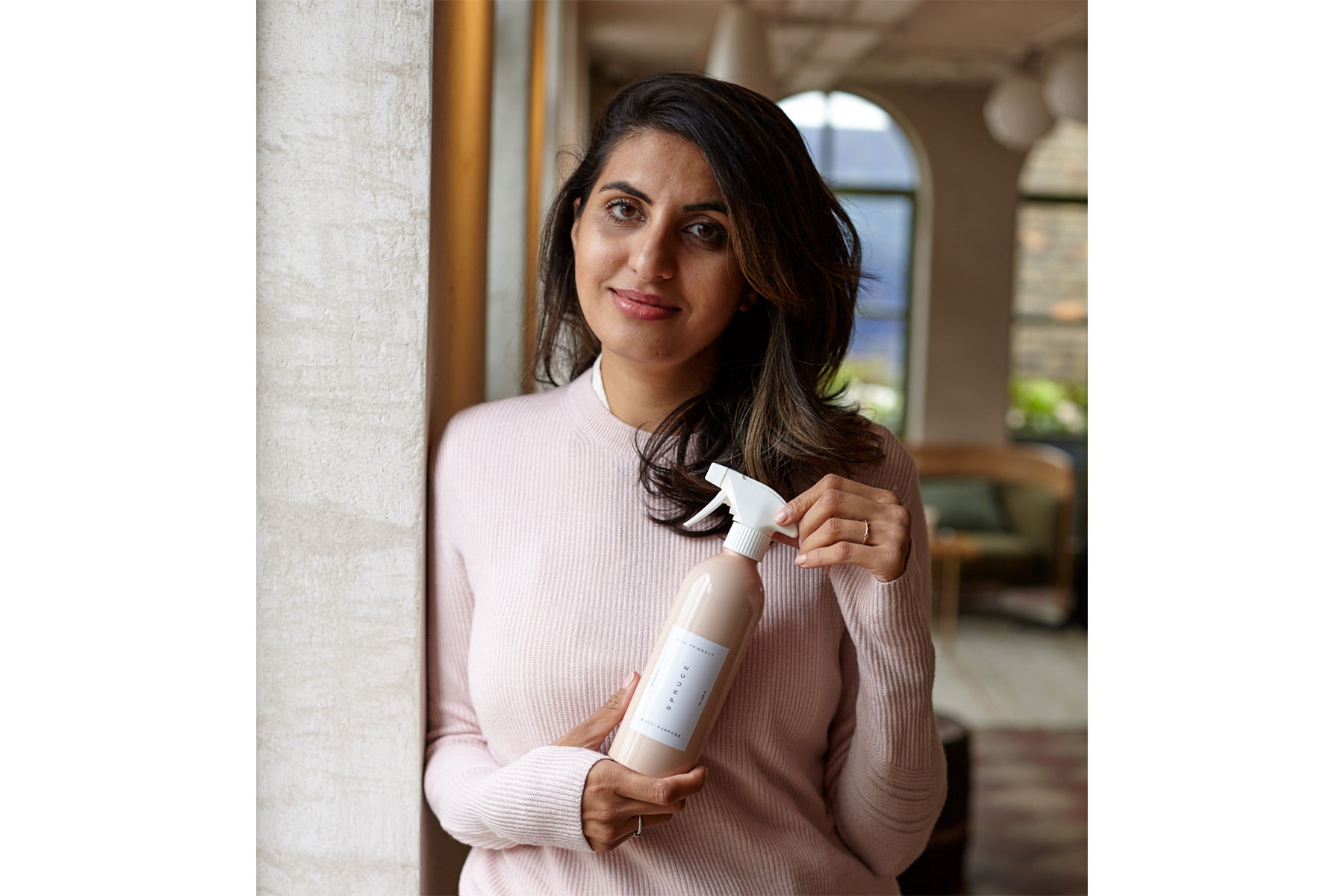
When was your green lightbulb moment?
There wasn’t a single lightbulb moment for Spruce, instead, it was a series of experiences that reinforced the idea in my mind over the years. Both my husband and I suffered from life-changing health issues on a continuum. We re-evaluated our lifestyles and cut out everything we believed was ‘toxic’ or ‘polluting’ in pursuit of a cleaner living. I was keen to purge our kitchen of plastic packaging and containers that are damaging to our health, even the ones that are BPA-free. For instance, many people don’t realise that plastic containers leach chemicals and mix with your food at both extremely high and low temperatures i.e., when frozen and when you put them in the microwave. Even the one’s classified as BPA-free.
We switched to organic produce which isn’t sprayed with pesticides and only use ‘clean’ beauty products, diligently researching every single ingredient. But I had a hard time finding safe cleaning products that we use daily and continuously breathe them in. Most cleaning products contain harmful chemicals and pesticides that are known endocrine disruptors and cause indoor air pollution. I also realised there is no convenient way to switch to eco-friendly cleaning products that are easy to adopt and effective at the same time.
What green business practices are you most proud of?
Our goal was to offer a safe, convenient and truly eco-friendly alternative in a market that is flooded with toxic chemicals and single-use plastics. In this industry, pretty much every cleaning brand has some sort of ‘eco’ marketing message – essentially greenwashing.
We have designed a product without harmful chemicals, without shipping water – remember typical cleaning products contain over 95% water content – and no single-use plastics. We are able to massively cut down our carbon footprint as our plastic-free refills are 140 times lighter than the water-filled alternative. Most importantly, we are putting up a major fight against greenwashing. We tell our customers who we are and the waste we generate rather than using greenwashing and eco-anxiety causing terms such as zero-waste. We believe it isn’t truly possible to be zero-waste unless you are not buying, using and producing anything at all.
We also often get asked what is more important for Spruce as a brand, being non-toxic for people or environmentally friendly? I strongly believe the two are not mutually exclusive. What is toxic for humans, such as the harmful chemicals in cleaning products, also washes down our waterways and affects marine life. And now we know the plastics that have been polluting the planet for decades are found in our water, soil and air, causing serious health issues for humans and animals. For instance, in recent years, male and female infertility has been linked to toxic chemicals in cleaning products as well as the plastics that are found in our bodies. We are proudly on a mission to end our addiction and reliance on both.
What makes you feel positive about a sustainable future?
The good news is that there is a lot of education and awareness about damage to the planet and consequently human health and wellbeing. Consumers can see through greenwashing and are willing to make a change, which often comes at a price whether it is higher cost or inconvenience. A great example is the number of refill and zero-waste stores that are popping up everywhere. Consumers are happy to go through the hassle of carrying their own containers to be refilled in stores as they understand the impact of plastic pollution. I am also thrilled about more established and recognisable certification standards such as B Corp.
We are proud to become a pending B Corp in our first year of business. Certified B Corporations are businesses that meet the highest standards of verified social and environmental performance, public transparency, and legal accountability to balance profit and purpose. B Corp businesses are 68% more likely to hire women and are twice as likely to use 100% renewable energy. We believe that businesses built with purpose will build a more sustainable future for us and our future generations.
And what are the facts that make you fearful?
So many, but here some that stand out to us.
- Only 9% of the world’s plastic has been recycled. The UK sent 64,786 tonnes of plastic waste to non-OECD countries in the first seven months of 2020, the equivalent of more than 300 tonnes a day.
- At least 8 million tons of plastic end up in our oceans every year and make 80% of all marine debris from surface waters to deep-sea sediments.
- Equivalent of one garbage truck of plastic is being dumped into the oceans every minute, every day, and every week and every year.
- Toxic chemicals in cleaning products, especially overuse of pesticides is linked to long-term chronic health issues such as infertility, reduced lung function, lower natural immunity and obesity in children, and some recent research also links it to the significant rise in autoimmune diseases over the last few decades as our paranoia about germs and obsessive need to clean grows.
- the worst one yet, as a result of plastic pollution the sperm counts have decreased by 50% in the last 40 years, to the extent that by 2045 it might fall down to zero. The planet’s health equals our health, yet very few organisations are taking serious action to stop this.
- Female fertility and reproductivity have been massively at risk as well. It is believed that women get exposed to over 300 toxic chemicals just in their morning routine. This stat about human infertility is particularly personal to me, and the reason why I started Spruce. I suffered from a gruelling infertility journey for ten years of my life which is what led me to change my lifestyle and question every ingredient, packaging and product we use without giving it much thought.
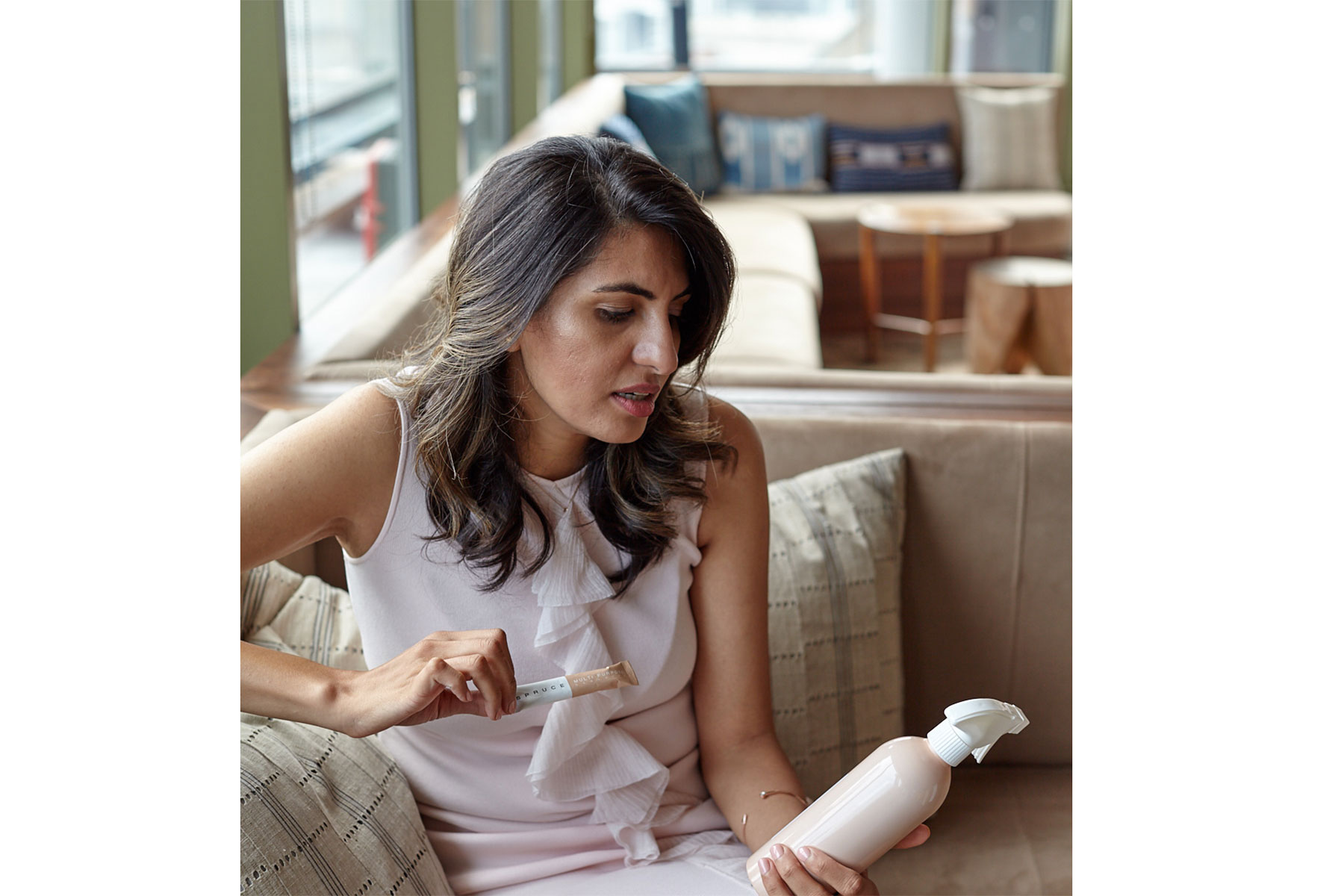
Who is your own green hero?
There are many from Greta to David Attenborough to many brand founders that are driving meaningful change by tackling climate change and some of the world’s biggest challenges. I have to say my toddler son inspires me a lot with his drive to save the world from plastic pollution. He goes on a plastic rubbish collection mission when he is out in the playground. We can learn a lot from children on how to creatively reuse and repurpose what we already have rather than rushing to Amazon for all our needs to be instantly fulfilled with products that have a short life span.
Your favourite product– and tell us why we can feel good about buying it?
Our multipurpose cleaner is a customer favourite. It’s made with mostly food-grade ingredients, no known toxins, zero artificial colour or synthetic fragrances. We use mild natural and organic essential oils that are the antithesis of overpowering fake scents we are used to in cleaning products. Customers have called it “the Jo Malone of cleaning”, “a beauty product for your home” and “smells like Turkish rose”. Imagine that, a far cry from anything you currently find on the cleaning aisles in supermarkets.
Can producing anything new really be called sustainable?
Sadly no. The only way to reduce waste is to reuse and repurpose what you already have – principles our product is designed after. We believe that the term zero-waste is misleading and causes eco-anxiety. We want to stress that we are not yet another ‘zero-waste’cleaning brand. Brands often overstate or misrepresent their eco-credentials; we are trying to be the opposite by showing our waste behind the scenes and how we plan to tackle it. Everything produces waste, our aluminium bottles come in plastic film, plastic wires hold them together, there is plastic on our postage labels and all of it cannot be easily recycled. But we do have a plan to create something new out of our waste soon so we can truly circular and closed loop without any of our waste going to the landfill. Keep your eyes peeled.
Where do you source your materials?
All our materials are sourced within the EU and are fully traceable. We wanted to keep a low environmental footprint in every way. It’s not just enough to fight plastic pollution, while causing damage in another way to the planet. Lower carbon footprint and not using palm oil and petroleum derivatives in our formulations as well as packaging is important to us.
Name three other of your favourite brands who are doing the right thing and why you like them?
Oddbox and Olio are our favourite brands fighting food waste which is another significant challenge the planet is facing. In the western world, we throw away massive amounts of perfectly edible food daily, while there are people starving for a single meal a day in other less fortunate countries. Rubies in the Rubble is another favourite that makes condiments from food that would have otherwise gone to waste. Another reason to love all three brands is that they are female-founded by trailblazers tackling the world’s biggest challenges.
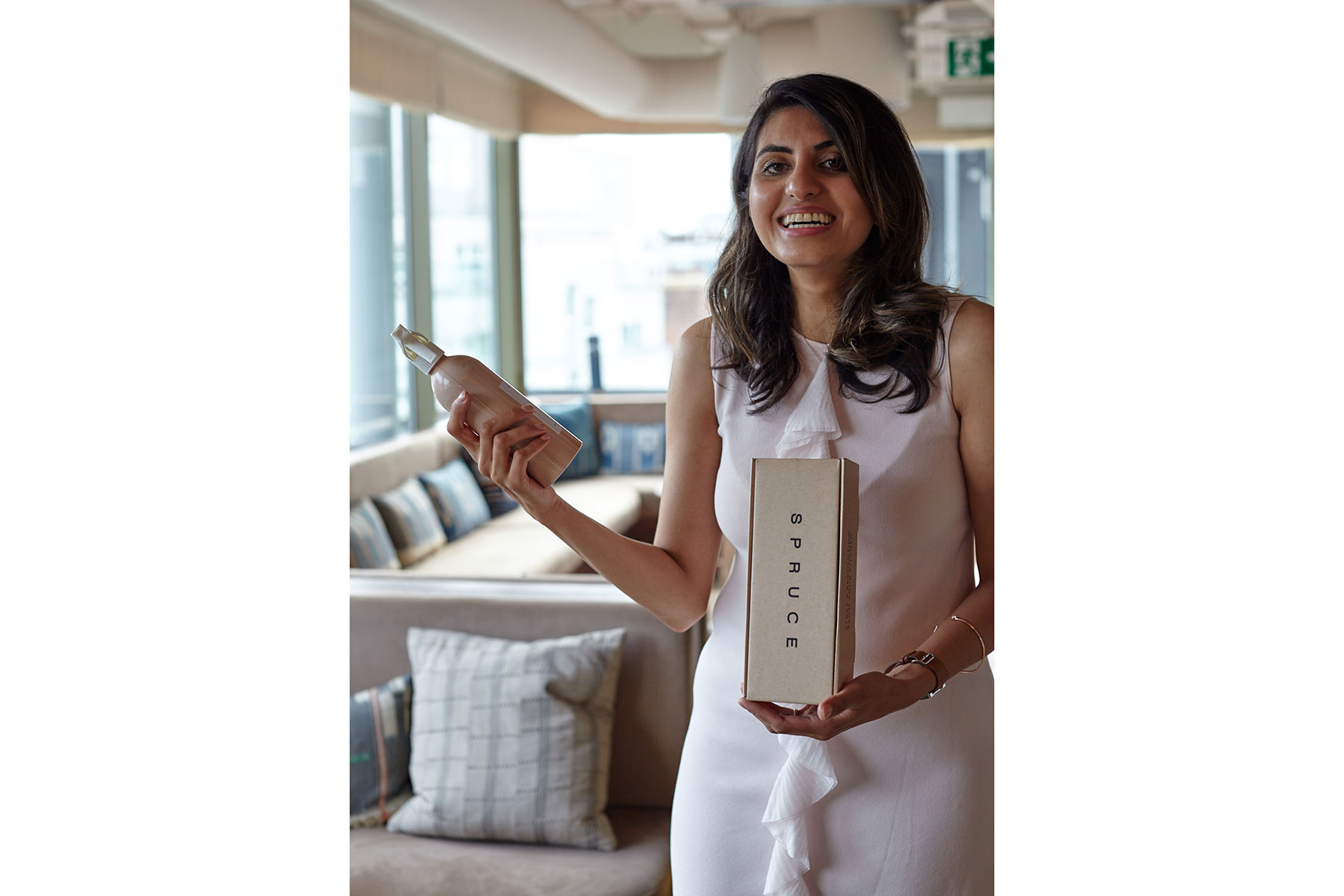
Should we be green shaming the brands/companies who are doing nothing to change their ways?
This is a complex issue. As a brand, we don’t name and shame any other cleaning brands, our direct competitors, that are doing the opposite of what we do and are not truly eco-friendly in both their products and practices.
On the other hand, when it comes to human abuse, taking an activist approach often means you have to be loud and clear about who you are talking to, for instance, modern-day slavery and squalid conditions fast fashion workers operate in. Customers often don’t realise how their purchasing decisions and reliance on such brands propagate such unethical practices behind the scenes.
Green shaming is not the right word. I think that people should be aware that just because a company claims to be helping the environment it does not necessarily mean anything is actually being done. For example, Amazon has released a sustainability statement where they promise to switch to renewable energy by 2040, but at the same time selling top equipment to oil companies to aid with fracking. We think people should be made aware when brands give conflicting messages about their priorities.
What are the biggest challenges in running a sustainable business?
Running an ethical and sustainable business is most certainly not easy, given there is always a cheaper, lower quality product out there. There are often decisions we have to make that make us more sustainable, environmentally friendly and safer for humans, that our customers will never see. But I believe if we run our business practices like any other business, then there is no reason for us to exist.
People often question why we don’t offer 99p non-branded cleaning products prices while offering a truly ethical, fully sustainable product and packaging. The simple answer is consumers have been made used to fast fashion prices and same day rushed delivery. I always say if we offer a sustainable and ethical product at fast-fashion prices, that means we are compromising on quality and ethics – someone is not getting paid a fair wage in the process.
What advice can you give to other businesses who are wanting to do better?
Consumers, especially through one year of living through the pandemic, care about who they support with their wallet. Ethical and sustainable brands, especially small businesses will stand out. My advice is to stay true to your values and focus on the one or two things that you truly believe in, rather than following the herd. I also recommend looking at product and service redesign to cut out waste inherently from your product. Donating to charities, planting a tree and offsetting carbon emissions is a good start but it doesn’t undo the damage that is already done to the planet.
Just like consumers, businesses need to think about their footprint while designing products. Remember, when plastic and toxic chemicals end up in our waterways, oceans and soil, it causes irreparable damage. It is impossible to remove the microscopic nano-plastics from the ocean, just like it is impossible to reverse and repair the microbiome of soil once it is altered. That means our future generations will live off a very compromised planet in a not so distant future.
Will you sign up to going carbon neutral (or even negative) by 2050?
We hope to contribute to the UK’s goal to become Net-Zero by 2050. Our refill packaging is carefully designed to reduce carbon footprint as it weighs 140 times less than a typical cleaning bottle and can be composted with food waste at home. We will thoroughly evaluate our operations to assess the end-to-end carbon footprint across our supply chain. We hope to offset more than the emissions we produce to achieve a carbon-negative status.
Three things we should all, as individuals, be doing to help in the climate change fight?
- Try to refill as much as you can. Things like pasta and rice are actually cheaper to get from refill stores than the supermarket wrapped in plastic.
- Support small businesses and brands that are on a mission to fight climate change.
- Reuse and repurpose. Use what you already have, especially when it comes to clothing. Clothing recycling is still quite nascent and cannot tackle the billions of tons of clothing that end up in the landfill. Think really hard before sending anything to landfill. The more lives you can give to your possessions, the better.
To find out more about Spruce, visit wearespruce.co
MORE GREEN HEROES:
Malak Ben Hmeda / Lucy Macnamara

